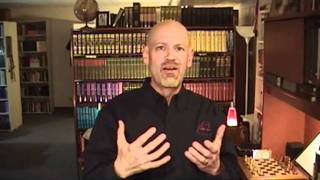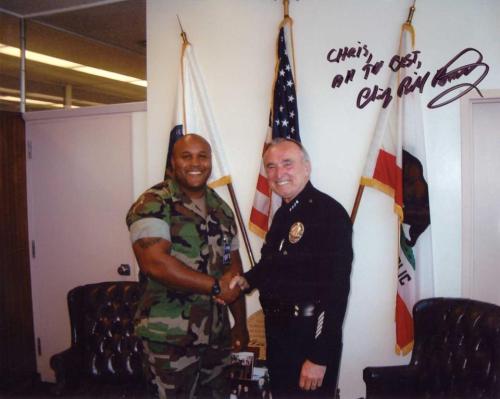I enjoy reading this blog by a guy who goes by the handle “Wintery Knight.” A few days ago WinteryKnight posted a lecture by Jerry Walls rejecting Calvinism. That post produced many comments. In the past our blog experienced similar dialogues concerning Calvinism though at a smaller scale (see for instance the comment section of this post). Overall the comments at Wintery Knight were cordial. From a quick scan, I thought the most problematic comment was by an individual who went by the name “TMD” which I produce in full below :
Calvinists delude themselves into thinking that they have Scripturally-derived beliefs, when in fact, they are guilty of the exact same type of atomistic prooftexting that is often used to show Jews that Jesus is Messiah.
One can use this method to prove almost anything. Open theism can be proven no less effectively through this method:http://openviewtheology.com/95_verses.html
Calvinists might respond that there are responses to these verses. Sure, but the Arminian, Roman Catholic, and Eastern Orthodox responses to Calvinist prooftexting are no worse. The different parties are in exactly the same boat, but the Calvinists are in denial of this.
Our interpretation of Scripture must be shaped by outside factors, such as archaeology. The population size of ancient Egypt, for example, was so small that we cannot rationally hold to a literal interpretation of the numbers of people in the book of Numbers. Archaeology MUST take precedence over philology.
As Angus Menuge has demonstrated (along with Richard Swinburne and Alvin Plantinga) it is logically impossible for any deterministic entity to reason. Therefore, any argument for determinism, including a Biblical argument, is self-refuting. The job of the exegete will then be to interpret Scripture in such a way that is consistent with the undeniability of libertarian free will. To do otherwise is like trying to prooftext that pi=3. It it futile to try.
I wish to offer some quick thoughts concerning the commentator’s reasoning rather than a defense of Calvinism per se. In the past I have seen how some Calvinists are quick to offer a positive presentation of Calvinism but if the hearer’s hermeneutics and methodological commitments rule out the Calvinist’s Scriptural presentation ahead of time while remaining deeply flawed then it might be more fruitful to evaluate and tackle these pre-commitments head on first. Have a metaphorical knock out. Hopefully without the result of TMD (google it).
Let’s take a closer look at the comment.
“Calvinists delude themselves into thinking that they have Scripturally-derived beliefs, when in fact, they are guilty of the exact same type of atomistic prooftexting that is often used to show Jews that Jesus is Messiah. One can use this method to prove almost anything. Open theism can be proven no less effectively through this method:http://openviewtheology.com/95_verses.html Calvinists might respond that there are responses to these verses. Sure, but the Arminian, Roman Catholic, and Eastern Orthodox responses to Calvinist prooftexting are no worse. The different parties are in exactly the same boat, but the Calvinists are in denial of this.”
Problem 1: Note the first sentence makes claims that Calvinists “delude themselves,” and are guilty of “atomistic prooftexting.” While he asserts this, he has not demonstrated that Calvinists have deluded themselves or are “atomistic” in their approach to Scripture.
Problem 2: To say that there are other interpretations besides the Calvinistic conclusion is no refutation of Calvinistic use of selected passages.
Problem 3: There is also the assertion that the Arminians, Roman Catholics and Eastern Orthodox response to Calvinistic proof-texting are “in exactly the same boat” with the Calvinists. This is also not demonstrated.
Problem 4: To just assert that Calvinists are in denial that they are proof texting neither prove Calvinists have committed proof texting nor does this refute Calvinism.
Our interpretation of Scripture must be shaped by outside factors, such as archaeology.The population size of ancient Egypt, for example, was so small that we cannot rationally hold to a literal interpretation of the numbers of people in the book of Numbers. Archaeology MUST take precedence over philology.
Problem 5: “Our interpretation of Scripture must be shaped by outside factors, such as archaeology…” but I would add that we must also take into account the degrees of certainty of each extra-biblical data being used. The lower the certainty that the discovered data is true, the more cautious one should be in allowing these external data to shape our interpretation of Scripture.
Problem 6: While allowing room for archaeological contribution in our hermeneutics and exegesis, one must also realize the limitation of outside sources since things such as archaeological data are interpreted, partially complete and fallible.
Problem 7: Ironically, TMD’s previous rhetoric rejecting Calvinism on the basis that there’s “proof texting” being committed can be turned against his stance that archaeological data should drive one’s interpretation of Scripture: Since all archaeological factoid is “decontextualized” to a certain degree despite the best effort of archaeologists, it is inevitable that archaeologists have a factoid that is isolated from it’s total context, and thus there is a level of proof text going on to a certain degree.
Problem 8: Per problem 7, wouldn’t Scripture being true also help situate archaeological finds and give them a “fuller” context? Rather than it being a one way street, Scripture helps one from “proof texting” archaological data. And since the nature of Scripture is both (1) propositional in form, that is revealing truth directly and (2) as God’s Word is always true, it seems the inter-relationship between archaeology and the Bible is not equal in their inter-dependence and authority.
Problem 9: Per Problem 7, it must be legitimately questioned whether “archaeology MUST take precedence over philology.” Especially since philology involves language, being the actual medium directly used to convey information in the Scriptures, there must be a greater priority for philology and all things pertaining to languages in one’s heremeneutical hierarchy in order to establish authorial intent.
Problem 10: Per Problems 6, 7, 8 and 9, TMD’s example against “a literal interpretation of the numbers of people in the book of Numbers” does not follow.
As Angus Menuge has demonstrated (along with Richard Swinburne and Alvin Plantinga) it is logically impossible for any deterministic entity to reason. Therefore, any argument for determinism, including a Biblical argument, is self-refuting. The job of the exegete will then be to interpret Scripture in such a way that is consistent with the undeniability of libertarian free will. To do otherwise is like trying to prooftext that pi=3. It it futile to try.
Problem 11: “The job of the exegete will then be to interpret Scripture in such a way that is consistent with the undeniability of libertarian free will.” But I will contend that it still needs to be demonstrated that LFW exists rather than a given.
Problem 12: Per 11, to assume LFW as a hermeneutical priority in reading the text makes one suspectible to proof texting, especially if it’s not a given that Scripture teaches LFW.
Problem 13: No demonstration is given of how a Biblical argument against LFW is self-refuting.
Problem 14: Angus Menuge paper titled “Libertarian Free Will and the Argument from Reason” acknowledges, “However,being controlled isn’t the problem: what matter is what controls you: you are free so long as your will is governed by the right (rational) causes.” Then he went on to argue against Compatibalism (a view many Calvinist hold) by refuting something that is not compatiablism (thus commiting a straw man fallacy) on the basis that reasoning presupposes responsibility and without coercion against their will. Compatibalism holds to both tenets.









 Purchase: Amazon
Purchase: Amazon




